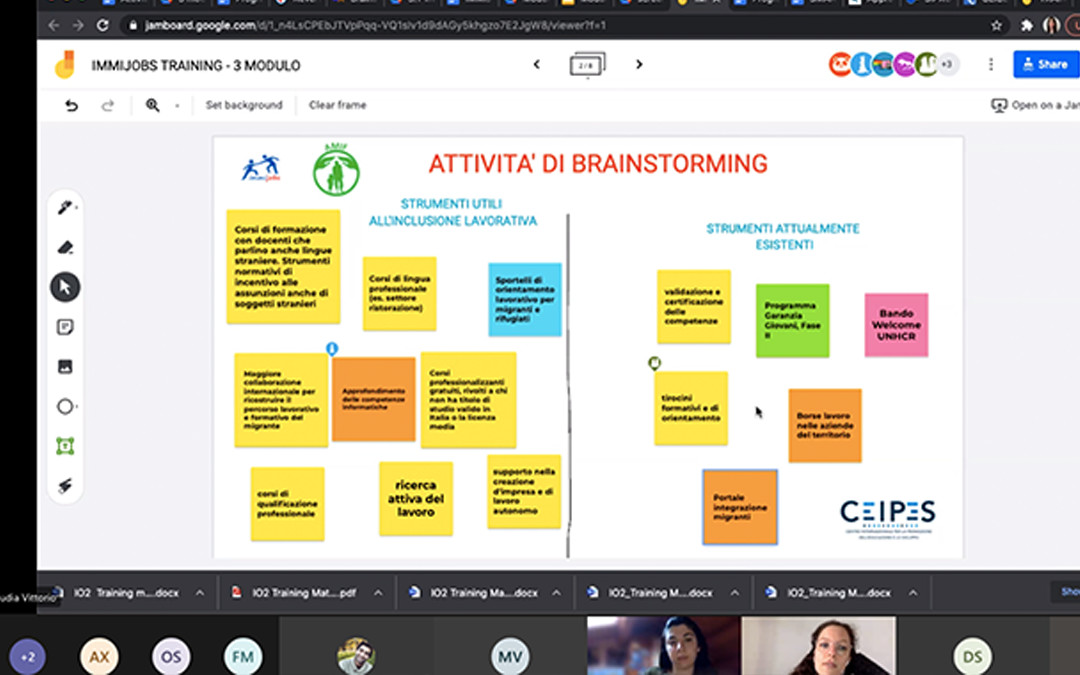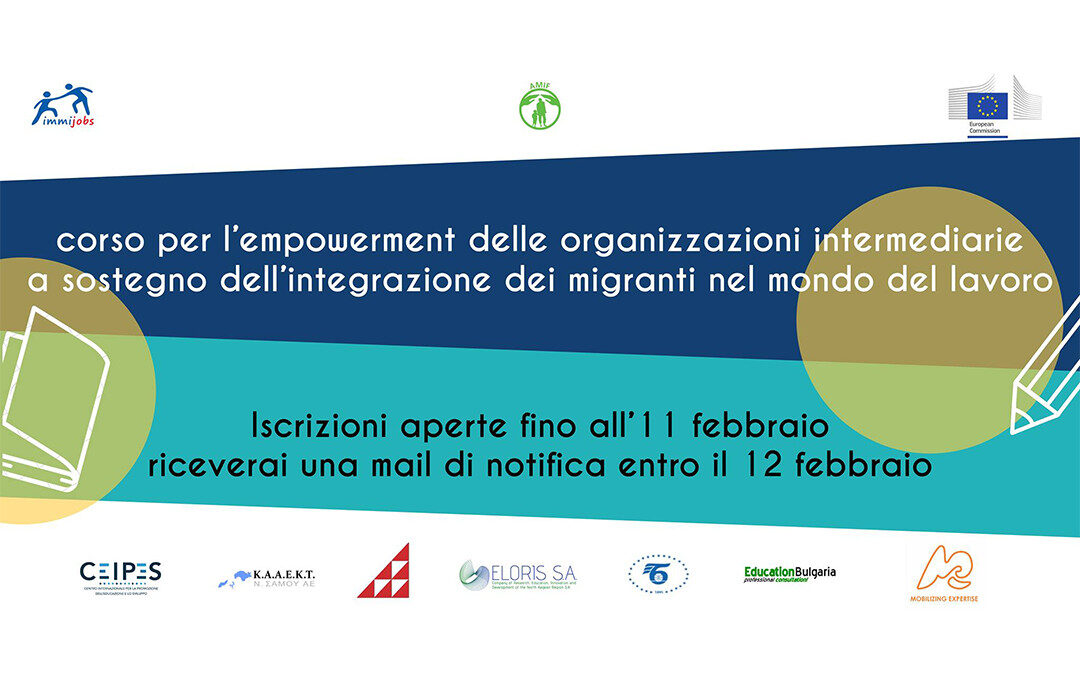With great pride, and a bit of melancholy, CEIPES announces that the Training for the Empowerment of Intermediary Organisations to Support the Labour Market Integration of Migrants and Refugees has been successfully concluded!
The 30-hour, three-week online training was divided into international sessions (once a week) via the ZOOM platform and national sessions (twice a week) that took place on the TEAMS platform.
The training is part of the project IMMIJOBS – Building the Capacity of Intermediary Organizations to Support the Employment of Third Country Nationals (IMMIJOBS-AMIF-2017-AG-INTE) financed by the FAMI programme (Asylum, Migration and Integration Fund) which sees the collaboration of 8 partners from 8 different European countries: KEKAPEL S.A. (coordinator – Kentro epaggelamtikis katartisis tis perifereiakis enotitas lesvou AE), ACTION Synergy S.A. and KAAEKT SAMOU (Employment and Vocational Training Center & Technology of Samos) S.A. from Greece; BCCI (SDRUZHENIE BULGARSKA TARGOVSKO-PROMISHLENA PALATA) and NCVT (National Centre for Vocational Training within Chambers of Commerce and Industry) from Bulgaria; Pro IFALL and Helsinborg (Arbetsmarknadsförvaltningen) from Norway.
The participants in the online training (17 in total) are all from job centres, employment agencies, accommodation centres, cooperatives and companies from all over Sicily.
The topics covered were enriched by the interventions of local experts who brought their experience and answered all the questions and queries raised by our participants.
The first module “Assessing the skills of migrants and refugees” tried to analyse the tools offered by the European Union to make this activity easier and saw the intervention of Dr. Alessia Di Francesca, team leader and project manager of CEIPES thanks to which we deepened the VET (Vocational Educational and Training) theme and how to use this training opportunity with migrants and refugees. This was followed by the intervention of Professor Giorgia Listì, teacher at CPIA Palermo 1, Nelson Mandela and Dr. Salvatore Danile, psychologist and psychotherapist at some reception centres in Palermo who helped us to identify and overcome some problems related to the compilation of the curriculum vitae of a person with a migrant background.
The second module on “Rights and Duties of Migrants and Refugees in the Workplace” benefited from the intervention of Dr. Laura Bondì, lawyer at the Legal Clinic for Human Rights at the University of Palermo. The theoretical part was enriched by a series of practical activities and exchange of experiences of the training participants.
The third module on “Employment support to third-country nationals and entrepreneurs” held in the late afternoon of 23 February 2021, introduced some relevant methodologies to understand how to provide employment support to third-country nationals, thanks to the sharing of knowledge and good practices on the topic.
For the third module, on the “Promotion of diversity and non-discrimination in the workplace”, the intervention of the Observatory for Racial Discrimination Noureddine Adnane was fundamental and enriching, who opened the Anti-Discrimination at Work desk that denounces and makes visible, every day, acts of exploitation and continuous employment discrimination that people with migrant background have to live.
The fourth and penultimate module on “Apprenticeships and job training for third-country nationals” saw the collaboration of SEND, thanks to the intervention of Dr. Elena Milio, founder of the project.
The fifth and last module on “Apprenticeship and work training for third-country nationals” saw the collaboration of SEND, thanks to the intervention of Dr. Elena Milio, founder and president of the non-profit organisation that has been trying to create better working conditions and opportunities in the area for several years.
The training ended on 4/03/2021 with the last national module on “Possibility and importance of strengthening services” where with the participants we identified the services needed by a migrant and possible solutions to improve and strengthen them.
What are the next steps in the project?
Thanks to the interest shown by the training participants in the project, a focus group will be organised in the next few weeks to draw up an action plan on how to involve entrepreneurs and employers in our project. What we will also discuss is the realization of a workshop in order to increase the involvement of employers, with the aim of understanding how it will be possible to achieve a greater and more agile labour inclusion of migrants and refugees.
There is still a lot of work to be done on the project, so stay tuned to our Facebook, Twitter and Instagram channels to find out more.


